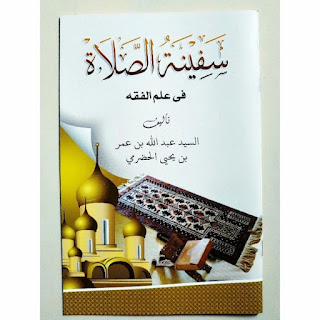الأول : طهارة الثوب والبدن والمكان من النجاسات وهي
الخمر
والبول
والغائط
والروث
والدم
والقيح
والقيء
والكلب
والخنزير
وفرع أحدهما
والميتة وشعرها وظلفها
وجلدها إلا ميتة الآدمي والسمك والجراد والمذكاة المباح أكلها
فمتى لاقت هذه النجاسات
ثوب الانسان أو بدنه أو مصلاه أو غيرها من الجامدات مع رطوبة فيها أو في ملاقيها
فإن كان لها طعم أو لون أو ريح وجب غسلها حتى يزول
ثم يزيد في نجاسة الكلب
والخنزير ست غسلات واحدة منها مزوجه بتراب طهور وإن لم يكن لها طعم و لون و ريح
وإن كانت من الكلب والخنزير غسلها سبع غسلات واحدة منها ممزوجة بتراب طهور, وإن
كانت من غيرها غسلها مرة
ويجب صب الماء على المتنجس
إذا كان الماء دون القلتين فإن أدخل المتنجس فيه لم يطهر وتنجس الماء وملاقيه
ويجب عليه الإستبراء من
البول حتى يغلب على ظنه أنه لا يعود ولا يخرج ثم يستنجي ويرخى دبره حتى يغسل ما في
طبقاته من النجاسة ويدلكه حتى يغلب على ظنه زوال طعم النجاسة ولونها وريحها
ومتى لاقت النجاسات
المذكورة الماء فإن كان قلتين لم ينجس ، إلا إن غيرت طعمه أو لونه أو ريحه ويطهر
بزوال التغير, وإن كان أقل منهما ينجس بالملاقاة وإن لم يتغير ويطهر ببلوغه قلتين
ومتى لاقت النجاسات
المذكورة مائعا غير الماء تنجس بملاقاتها قليلا أو كثيرا تغير أو لم يتغير ولا
يطهر قط
As for its
conditions, there are 12 for the prayer:
First; the cleanliness of the
clothes, body, and place from several impurities, namely: wine, urine, feces, animal filth, blood, pus, vomit, dogs, pigs, offspring of
dogs and pigs. Carrion, including hair/fur, nails, and skin, except for the corpse
of a human, the carcass of a fish, locusts, and animals that die through halal
slaughter for consumption.
When these impurities adhere to someone's clothes, body, or the
prayer area, or attach to other solid objects provided that the impurity is in
a wet condition or the object affected by the impurity is wet, then if the
adhering impurity has taste, color, or smell, it is obligatory to wash it until
it disappears.
Then added to the washing of impurities from dogs and pigs, the
washing is done six times, one of which is mixed with pure and purifying dust,
even if the impurity does not have taste or color. So, if the impurity is
from dogs and pigs, the washing is done seven times, with one of them mixed
with pure and purifying dust. Whereas, if the impurity is from other than dogs
and pigs, the washing is only done once.
And it is obligatory to pour water on an
object that has been contaminated with impurity if the water is less than two
kulah (two tub), because if an object contaminated with impurity is placed in
such water, the object cannot become clean; instead, both the water and the
objects that come into contact with the impure object become impure.
And it is obligatory for him to complete urination until he is
reasonably certain that no more urine will come out. After completing
urination, he should perform istinja' (cleansing) by loosening his anus so that
he can wash the impurities in the folds of the anus and rub them until he is
reasonably certain that the taste, color, and smell of the impurity have disappeared.
And it is obligatory for him to complete urination until he is reasonably
certain that no more urine will come out. After completing urination, he should
perform istinja' (cleansing) by loosening his anus so that he can wash the
impurities in the folds of the anus and rub them until he is reasonably certain
that the taste, color, and smell of the impurity have disappeared.
If the impurity affects water, then; If the water is two kulah (tub), it does not
make the water impure unless its taste, color, or smell changes. The water is
deemed pure again if these changes disappear. If the water is less than two
kulah (tub), it is considered impure even if there is no change, and the water
becomes pure again when it reaches two kulah (tub) (by adding
water until it reaches two kulah (tub)).
If the impurity affects liquid substances other than water, the
liquid is considered impure, whether the liquid is small or large, changed or
unchanged, and the liquid can no longer become pure.
Thanks for reading & sharing Islamic Q&A



0 komentar:
Posting Komentar